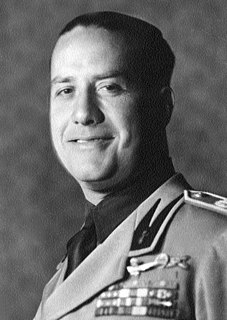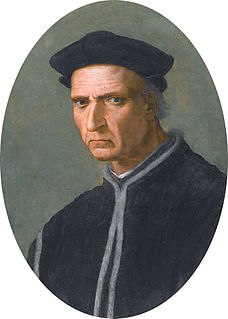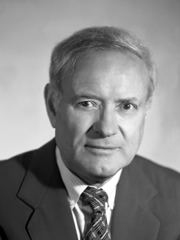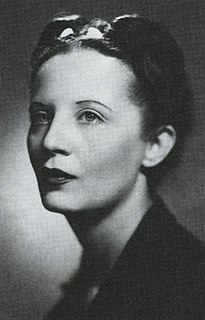
Goffredo Mameli was an Italian patriot, poet, writer and a notable figure in the Risorgimento. He is also the author of the lyrics of "Il Canto degli Italiani", the national anthem of Italy.

Gian Galeazzo Ciano, 2nd Count of Cortellazzo and Buccari was an Italian diplomat and politician who served as Foreign Minister in the government of his father-in-law, Benito Mussolini, from 1936 until 1943. During this period, he was widely seen as Mussolini's most probable successor as head of government.

Pier Paolo Pasolini was an Italian film director, poet, writer, and intellectual, who also distinguished himself as an actor, journalist, novelist, playwright, and political figure.

Alberto Sordi was an Italian actor, voice actor, singer, comedian, director and screenwriter.

Edmondo De Amicis was an Italian novelist, journalist, poet and short-story writer. His best-known book is Cuore, a children's novel translated into English as Heart.

Paolo Rossi was an Italian professional footballer who played as a forward. He led Italy to the 1982 FIFA World Cup title, scoring six goals to win the Golden Boot as top goalscorer, and the Golden Ball for the player of the tournament. Rossi is one of only three players, and the only European, to have won all three awards at a World Cup, along with Garrincha in 1962, and Mario Kempes in 1978. Rossi was also awarded the 1982 Ballon d'Or as the European Footballer of the Year for his performances. Along with Roberto Baggio and Christian Vieri, he is Italy's top scorer in World Cup history, with nine goals overall.

Piero di Tommaso Soderini also known as Pier Soderini, was an Italian statesman of the Republic of Florence.

Alberto Moravia was an Italian novelist and journalist. His novels explored matters of modern sexuality, social alienation and existentialism. Moravia is best known for his debut novel Gli indifferenti (1929) and for the anti-fascist novel Il Conformista, the basis for the film The Conformist (1970) directed by Bernardo Bertolucci. Other novels of his adapted for the cinema are Agostino, filmed with the same title by Mauro Bolognini in 1962; Il disprezzo, filmed by Jean-Luc Godard as Le Mépris ; La Noia (Boredom), filmed with that title by Damiano Damiani in 1963 and released in the US as The Empty Canvas in 1964 and La ciociara, filmed by Vittorio De Sica as Two Women (1960). Cédric Kahn's L'Ennui (1998) is another version of La Noia.

Dario Bellezza was an Italian poet, author and playwright. He won the Viareggio, Gatto, and Montale prizes.
The Nastro d'Argento is a film award assigned each year, since 1946, by Sindacato Nazionale dei Giornalisti Cinematografici Italiani, the association of Italian film critics.

Walter Patrick McConaughy, Jr. was a career American diplomat who served as U.S. Ambassador to a number of countries.

Don Guido Colonna, dei principi di Paliano, noble of Rome, patrician of Naples and Venice was an Italian aristocrat, diplomat and European Commissioner.

Andrea Checchi was a prolific Italian film actor.
Dino Sanlorenzo was an Italian politician, and a member of the Italian Communist Party. He was President of the regional Council in Piedmont from 1975 until 1980 and later deputy president of the Region till 1983. He was a member of the Italian Parliament in Rome from 1983 till 1987, and was a member of the foreign policy commission.
Almerindo Portfolio (1878–1966) was Italian-born American banker and financier. He was treasurer of New York City under Mayor Fiorello La Guardia. He was an immigrant from Schiavi di Abruzzo, Italy in 1888. In 1908 he legally changed his name from Almerindo Porfilio.

Paolo Volponi was an Italian writer, poet, and politician.

The Consulate General of the United States in Shanghai is one of the six American diplomatic and consular posts in the People's Republic of China.

Irene Brin was an Italian fashion journalist, writer and art dealer.

The Australian Consulate-General in Shanghai represents the Commonwealth of Australia in Shanghai, the most populous city and a global financial centre in the People's Republic of China. The Consulate-General, one of many in Shanghai, has its offices in the CITIC Square building, 1168 Nanjing Road West.
Mario Aspa was an Italian composer. He composed over 40 operas, the most successful of which were Paolo e Virginia and II Muratore di Napoli. He also composed two ballets and a Requiem Mass which was performed on the death of Vittorio Emmanuele II in 1878.
















